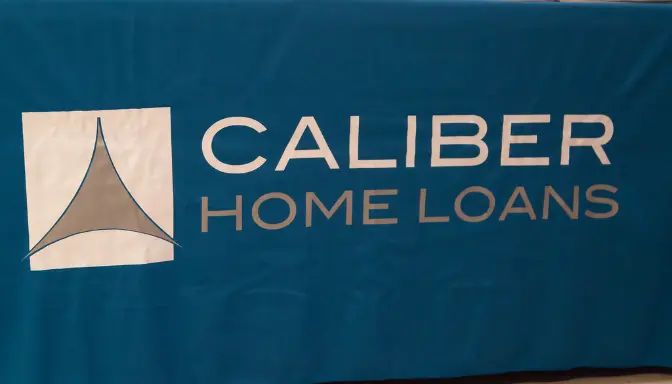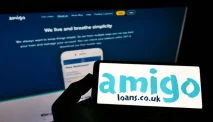Diksia.com - If you are looking for a mortgage lender that can provide you with a wide range of options, competitive rates, and excellent customer service, you may want to consider Caliber Home Loans. Caliber is one of the largest mortgage lenders in the U.S., with over $100 billion in loan originations in 2020. Caliber offers both purchase and refinance loans, as well as government-backed loans, jumbo loans, and specialty loans. Caliber also has a strong reputation for serving military borrowers, first-time home buyers, and low-income borrowers.
In this article, we will review Caliber Home Loans and its products, rates, fees, customer service, and reputation. We will also compare Caliber to some of its main competitors and alternatives, and provide some tips on how to choose the best mortgage lender for your needs.
What is Caliber Home Loans?
Caliber Home Loans is a mortgage lender that was founded in 2008 as a result of the merger of two companies: Caliber Funding and Vericrest Financial. Caliber is headquartered in Coppell, Texas, and has over 6,500 employees and 145 branches across the U.S. Caliber is a direct lender, which means that it originates, underwrites, and services its own loans. Caliber is also a seller and servicer of loans for Fannie Mae, Freddie Mac, and Ginnie Mae.
Caliber’s mission is to provide innovative lending solutions and exceptional service to its customers, business partners, and communities. Caliber’s vision is to be the most trusted and respected mortgage lender in the industry. Caliber’s values include integrity, respect, excellence, collaboration, and accountability.
What are the loan products and services offered by Caliber Home Loans?
Caliber Home Loans offers a variety of loan products and services for both home buyers and homeowners who want to refinance their existing mortgages. Some of the loan products and services offered by Caliber include:
- Fixed-rate conventional loans: These are loans that have a fixed interest rate and monthly payment for the entire loan term, which can be 10, 15, 20, or 30 years. Fixed-rate conventional loans are ideal for borrowers who want stability and predictability in their payments, and who plan to stay in their homes for a long time.
- Adjustable-rate conventional loans: These are loans that have an interest rate and monthly payment that can change periodically based on market conditions. Caliber offers several types of adjustable-rate conventional loans, such as 3/1, 5/1, 7/1, 10/1, and 5/5. The first number indicates how many years the initial interest rate is fixed, and the second number indicates how often the rate can adjust after that. For example, a 5/1 ARM has a fixed rate for the first five years, and then can adjust once a year thereafter. Adjustable-rate conventional loans are suitable for borrowers who want to take advantage of low initial rates, and who are comfortable with the risk of rate fluctuations, or who plan to sell or refinance their homes before the rate adjusts.
- Jumbo loans: These are loans that exceed the conforming loan limits set by Fannie Mae and Freddie Mac, which are $548,250 in most counties in 2021. Jumbo loans are designed for borrowers who want to buy or refinance high-priced properties. Caliber offers jumbo loans up to $3 million, with fixed or adjustable rates, and with various down payment and credit score requirements.
- Government-backed loans: These are loans that are insured or guaranteed by the federal government, which makes them more accessible and affordable for certain groups of borrowers. Caliber offers the following types of government-backed loans:
- FHA loans: These are loans that are insured by the Federal Housing Administration, which allows borrowers to qualify with lower credit scores and down payments than conventional loans. Caliber offers FHA loans with fixed or adjustable rates, and with down payments as low as 3.5%. Caliber also offers FHA 203(k) loans, which allow borrowers to finance the purchase and renovation of a home with one loan.
- VA loans: These are loans that are guaranteed by the Department of Veterans Affairs, which provides benefits such as no down payment, no mortgage insurance, and lower interest rates for eligible veterans, active-duty service members, and surviving spouses. Caliber offers VA loans with fixed or adjustable rates, and with loan amounts up to $1.5 million. Caliber also offers VA Interest Rate Reduction Refinance Loans (IRRRLs), which allow borrowers to refinance their existing VA loans to a lower rate with minimal documentation and fees.
- USDA loans: These are loans that are guaranteed by the U.S. Department of Agriculture, which aim to promote homeownership in rural and suburban areas. Caliber offers USDA loans with fixed rates, and with no down payment and low mortgage insurance for eligible borrowers who meet the income and property requirements.
- Specialty loans: These are loans that are tailored to meet the specific needs of certain borrowers or situations. Caliber offers the following types of specialty loans:
- Freddie Mac HomeOne and Home Possible loans: These are loans that are designed for low- to moderate-income first-time home buyers, who can qualify with a 3% down payment and a minimum 620 credit score. Caliber offers HomeOne and Home Possible loans with fixed rates and flexible underwriting guidelines.
- Fannie Mae HomeReady loans and HomeStyle Renovation loans: These are loans that are intended for low- to moderate-income borrowers, who can benefit from a 3% down payment, reduced mortgage insurance, and flexible income sources. Caliber offers HomeReady loans with fixed or adjustable rates, and HomeStyle Renovation loans, which allow borrowers to finance the purchase and improvement of a home with one loan.
- New construction loans: These are loans that are used to finance the construction of a new home. Caliber offers new construction loans with fixed or adjustable rates, and with various options for the loan term, interest rate lock, and conversion to a permanent loan.
In addition to the loan products mentioned above, Caliber also offers home equity loans and home equity lines of credit, which allow borrowers to tap into the equity in their homes for various purposes, such as debt consolidation, home improvement, or education expenses.
What are the rates and fees of Caliber Home Loans?
The rates and fees of Caliber Home Loans vary depending on the type, amount, term, and features of the loan, as well as the borrower’s credit profile, income, assets, and other factors. Caliber does not publish its rates online, so borrowers need to contact a loan consultant or apply online to get a personalized quote.
Some of the fees that borrowers may encounter when getting a loan from Caliber include:
- Origination fee: This is a fee that covers the lender’s costs of processing and underwriting the loan. Caliber’s origination fee is typically 1% of the loan amount, but it may vary depending on the loan program and the borrower’s qualifications.
- Appraisal fee: This is a fee that pays for an appraisal of the property, which determines its market value and condition. Caliber’s appraisal fee is usually around $500, but it may vary depending on the type, size, and location of the property.
- Credit report fee: This is a fee that covers the cost of obtaining the borrower’s credit report, which shows the borrower’s credit history and score. Caliber’s credit report fee is usually around $25, but it may vary depending on the number of borrowers and the type of loan.
- Title fee: This is a fee that pays for a title search and title insurance, which verify the ownership and legal status of the property and protect the lender and the borrower from any title defects or claims. Caliber’s title fee is usually around $1,000, but it may vary depending on the loan amount, the property value, and the state and county where the property is located.
- Recording fee: This is a fee that pays for the recording of the mortgage deed and other documents with the county clerk’s office, which makes them public records. Caliber’s recording fee is usually around $100, but it may vary depending on the state and county where the property is located.
- Escrow fee: This is a fee that pays for the escrow service, which handles the transfer of funds and documents between the parties involved in the transaction. Caliber’s escrow fee is usually around $500, but it may vary depending on the state and county where the property is located.
- Prepaid items: These are costs that are paid in advance at closing, such as interest, property taxes, homeowners insurance, and mortgage insurance. Caliber’s prepaid items vary depending on the loan amount, the interest rate, the property value, and the date of closing.
The total closing costs of Caliber Home Loans can range from 2% to 5% of the loan amount, depending on the loan program and the borrower’s situation. Borrowers can ask for a loan estimate from Caliber, which will provide a detailed breakdown of the rates and fees of the loan.
How is the customer service of Caliber Home Loans?
One of the most important factors to consider when choosing a mortgage lender is the quality of its customer service. Caliber Home Loans claims to provide exceptional service to its customers, business partners, and communities. Caliber has a team of loan consultants who can guide borrowers through the loan process, answer their questions, and offer personalized solutions. Caliber also has an online portal and a mobile app, where borrowers can apply for a loan, upload documents, check their loan status, and make payments.
According to customer reviews on various platforms, such as Zillow, Trustpilot, and Consumer Affairs, Caliber Home Loans has a mixed reputation for its customer service. Some customers praise Caliber for its responsiveness, professionalism, and efficiency, while others complain about its lack of communication, delays, errors, and fees. Caliber’s overall rating on Zillow is 4.9 out of 5 stars, based on over 13,000 reviews. Caliber’s overall rating on Trustpilot is 3.9 out of 5 stars, based on over 2,000 reviews. Caliber’s overall rating on Consumer Affairs is 2.8 out of 5 stars, based on over 500 reviews.
How is the reputation of Caliber Home Loans?
Another factor to consider when choosing a mortgage lender is its reputation in the industry and among its peers. Caliber Home Loans has a strong reputation for being one of the largest and fastest-growing mortgage lenders in the U.S., with over $100 billion in loan originations in 2020. Caliber also has a strong reputation for serving military borrowers, first-time home buyers, and low-income borrowers, with various loan programs and initiatives.
Caliber has received several awards and recognitions, such as:
- Ranked #2 among the top 100 mortgage companies in America by Mortgage Executive Magazine in 2020.
- Ranked #3 among the top retail mortgage lenders in the U.S. by Inside Mortgage Finance in 2020.
- Ranked #6 among the top VA lenders in the U.S. by Inside Mortgage Finance in 2020.
- Named a top workplace by the Dallas Morning News in 2020.
- Named a top mortgage employer by National Mortgage Professional Magazine in 2020.
- Named a military friendly employer by VIQTORY in 2020.
However, Caliber Home Loans also has some negative aspects in its reputation, such as:
- Facing a lawsuit from the U.S. Department of Justice for allegedly violating the False Claims Act by knowingly originating and underwriting loans that did not meet FHA standards.
- Facing a lawsuit from the Consumer Financial Protection Bureau for allegedly failing to provide borrowers with accurate information about their options for avoiding foreclosure.
- Facing a lawsuit from the New York Attorney General for allegedly violating the state’s fair lending laws by discriminating against minority borrowers.
How does Caliber Home Loans compare to other mortgage lenders?
Caliber Home Loans is not the only mortgage lender in the market, and borrowers may want to compare it to other lenders to find the best deal and service for their needs.
Some of the main competitors and alternatives to Caliber Home Loans are:
- Quicken Loans: Quicken Loans is the largest mortgage lender in the U.S., with over $300 billion in loan originations in 2020. Quicken Loans offers a variety of loan products, such as conventional, FHA, VA, USDA, and jumbo loans, as well as its own proprietary products, such as YOURgage and Rocket Mortgage. Quicken Loans is known for its online and mobile platforms, which allow borrowers to apply for a loan, get approved, and close in minutes. Quicken Loans also has a high customer satisfaction rating, ranking #1 among mortgage servicers by J.D. Power for seven consecutive years.
- Wells Fargo: Wells Fargo is one of the largest banks and mortgage lenders in the U.S., with over $50 billion in loan originations in 2020. Wells Fargo offers a variety of loan products, such as conventional, FHA, VA, USDA, and jumbo loans, as well as home equity loans and lines of credit. Wells Fargo also has a large network of branches and loan officers, which can provide borrowers with in-person assistance and guidance. Wells Fargo also has a low-down-payment program, called yourFirst Mortgage, which allows borrowers to qualify with a 3% down payment and a minimum 620 credit score.
- LoanDepot: LoanDepot is one of the largest non-bank mortgage lenders in the U.S., with over $100 billion in loan originations in 2020. LoanDepot offers a variety of loan products, such as conventional, FHA, VA, USDA, and jumbo loans, as well as home equity loans and lines of credit. LoanDepot also has a hybrid platform, which combines online and offline channels, allowing borrowers to choose how they want to interact with the lender. LoanDepot also has a lifetime guarantee program, which waives the lender fees and reimburses the appraisal fee for borrowers who refinance with the lender.
How to choose the best mortgage lender for your needs?
Choosing a mortgage lender is a major financial decision, and it can be overwhelming and confusing for many borrowers. There is no one-size-fits-all answer, as different lenders may have different advantages and disadvantages for different borrowers.
However, some of the general tips and steps that can help borrowers choose the best mortgage lender for their needs are:
- Determine your budget and goals: Before you start looking for a mortgage lender, you should have a clear idea of how much you can afford to borrow, how much you can pay for a down payment and closing costs, and what kind of loan you want. You should also have a realistic expectation of your credit score, income, and debt-to-income ratio, which will affect your eligibility and interest rate.
- Shop around and compare: Once you have a budget and a goal, you should shop around and compare different lenders and loan products. You should get at least three quotes from different lenders, and compare their rates, fees, terms, and features. You should also check their customer reviews, ratings, and reputation, and see how they treat their borrowers and handle their complaints.
- Negotiate and lock: After you have narrowed down your options, you should negotiate with the lenders and try to get the best deal possible. You should ask for discounts, waivers, or credits, and see if they can match or beat the offers from other lenders. You should also lock your interest rate, which means that the lender will guarantee your rate for a certain period of time, usually 30 to 60 days, until you close the loan.
Conclusion
Caliber Home Loans is a mortgage lender that offers a variety of loan products and services for both purchase and refinance loans. Caliber has a strong reputation for being one of the largest and fastest-growing mortgage lenders in the U.S., and for serving military borrowers, first-time home buyers, and low-income borrowers. Caliber also has a mixed reputation for its customer service, and has faced some legal issues in the past.
Caliber is not the only mortgage lender in the market, and borrowers may want to compare it to other lenders to find the best deal and service for their needs. Choosing a mortgage lender is a major financial decision, and borrowers should do their research, shop around, compare, negotiate, and lock their interest rate before closing the loan.






